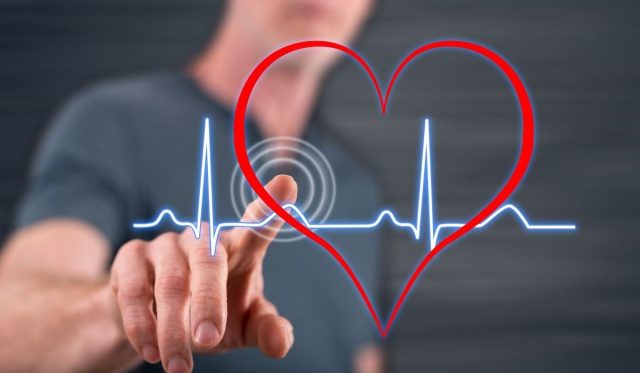In recent study, incidence of CTRCD and LVEF <40 percent were higher in association with high- versus low-risk AI ECG screen
By Elana Gotkine HealthDay Reporter
MONDAY, Sept. 16, 2024 (HealthDay News) — For patients undergoing treatment for certain types of cancer, artificial intelligence (AI) can use electrocardiographic (ECG) images to define the risk for cardiac dysfunction, according to a study published online Sept. 2 in Circulation: Cardiovascular Quality and Outcomes.
Evangelos K. Oikonomou, M.D., D.Phil., from Yale School of Medicine in New Haven, Connecticut, and colleagues identified 1,550 patients without cardiomyopathy who received anthracyclines and/or trastuzumab for breast cancer or non-Hodgkin lymphoma and had ECG performed 12 months or less before treatment. A validated AI model of left ventricular systolic dysfunction (LVSD) to baseline ECG images was used to define low-, intermediate-, and high-risk groups (AI-ECG LVSD probabilities of <0.01, 0.01 to 0.1, and ≥0.1). The association with early cancer therapeutics-related cardiac dysfunction (CTRCD) or left ventricular ejection fraction (LVEF) <40 percent was explored up to 12 months after treatment.
Of the participants, 5.4, 36.3, and 58.4 percent were classified as high, intermediate, and low risk, respectively, by baseline AI-ECG. The researchers found that the incidence of CTRCD and LVEF <40 percent was higher in association with a high- versus low-risk AI-ECG screen. AI-ECG LVSD probabilities were associated with significantly worse global longitudinal strain among 1,428 temporally linked echocardiograms and ECGs (–19 and –15 percent for <0.1 and ≥0.5, respectively).
“Our findings support the potential utility of AI-ECG monitoring for the cost-effective risk stratification and triage of patients receiving anthracyclines or trastuzumab in the setting of breast cancer or non-Hodgkin lymphoma therapy,” the authors write.
Several authors disclosed ties to the biopharmaceutical and health technology industries.
Copyright © 2024 HealthDay. All rights reserved.



















